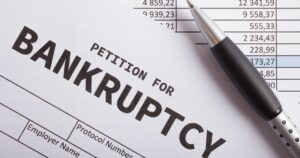When you file for Chapter 13 bankruptcy, the court assigns a repayment plan. This repayment plan was originally proposed by you and your bankruptcy attorney, and the court accepted it. Therefore, you are required to make those payments on time to the court’s trustee. But, what happens if you cannot make your bankruptcy plan payments?
So, what happens if you cannot afford to make those payments? If you fall behind, the court may dismiss your case and you will be required to pay all debts to creditors. However, before you fall behind, you have options to preserve your bankruptcy so that you can reach discharge status.
Getting Current
If you have a temporary financial emergency, it is something that you may resolve shortly. Once you do, you can catch up on missed payments to the court. However, you will need to ensure that you have enough time left to catch up.
If your case is nearing dismissal status, explain your temporary emergency financial situation to the court. You may be able to request extra time to catch up on past due payments. Most of the time, a judge will approve an extension so that you can rectify your default payments.
Modify the Chapter 13 Repayment Plan
If your financial situation is not going to change any time soon, you must request a modification to your existing repayment plan.
To modify, your attorney must provide documentation that exhibits your change in circumstances. They must also submit a new budget and repayment plan. It is up to the court if they will accept the lower payment.
Requesting Hardship Discharge Status
If your situation is severe enough, you may qualify for a hardship discharge. This is granted regardless of whether you have not completed your repayment plan.
The courts assess your current financial situation, and determine what is in the best interest of all parties involved (including creditors). If you receive a hardship discharge, your primary debts are not discharged, such as taxes or child support.
Converting to Chapter 7 Bankruptcy
Sometimes it is a matter of affordability. If you cannot afford to remain in the Chapter 13 repayment plan, you may qualify to convert your case over to Chapter 7. When you convert to Chapter 7, priority debts, such as student loan, tax debts, and child support in arrears, cannot be discharged. You are still obligated to pay these debts.
Your attorney can help you determine if you qualify for a conversion. If not, you may still qualify for a modification.
Have Your Case Dismissed and Refiled Later
When none of the other options work, you may be able to allow the case to be dismissed and refile Chapter 13 bankruptcy later. This is the ideal option if you must lower your payments or if you feel that you now qualify for Chapter 7.
Speak with a Bankruptcy Attorney to Explore Your Options
If you cannot afford the payments assigned to your Chapter 13 bankruptcy, do not assume you are out of options. Contact us today for a no-obligation consultation.

